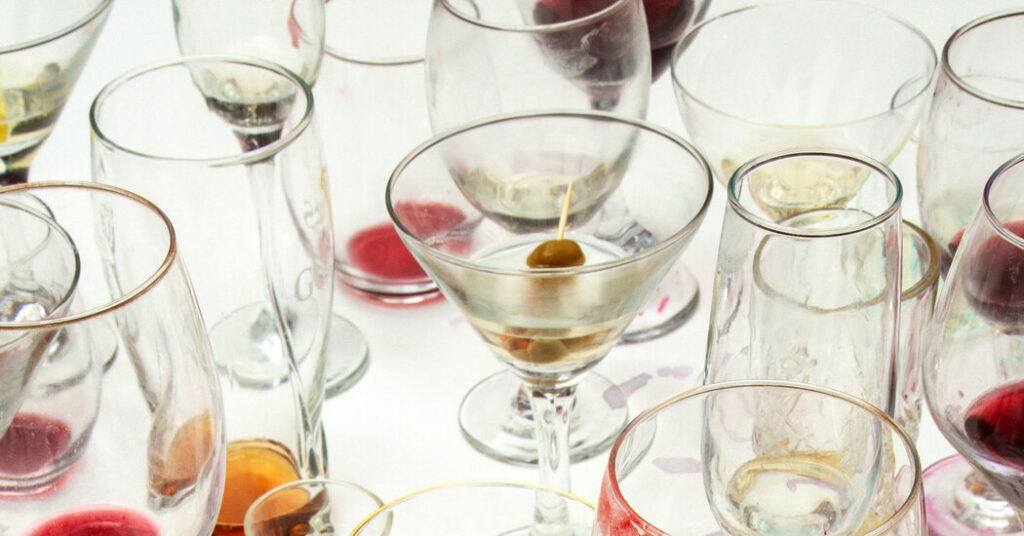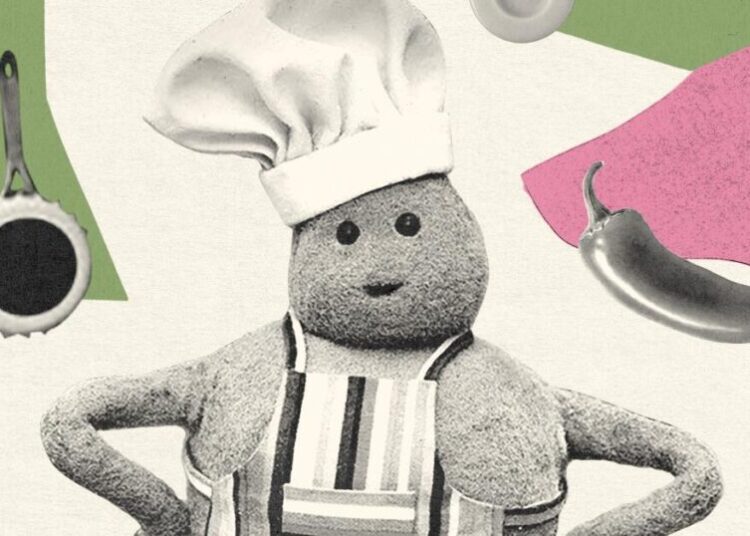Q: I don’t drink often, but I like to partake a little more than usual around the holidays. Is it OK to have more than a drink or two every once in a while?
While the term “binge drinking” might conjure thoughts of college parties and tequila shots, three glasses of wine and a hot toddy at Thanksgiving also counts. Federal health officials define binge drinking as four or more drinks on one occasion for women, and five or more for men.
Most people know that binge drinking, especially when it’s frequent, is dangerous for health. But is it still risky if you drink rarely, or not at all, for most of the year? We asked a few experts who study alcohol for their take.
Are there potential long-term risks?
When you drink alcohol, your body turns it into a toxic substance called acetaldehyde, which can damage DNA throughout your body — including in your mouth, throat, liver, colon and breasts. Each time your body repairs its DNA, cancerous mutations may arise, raising the risk for at least seven types of cancer.
Many of these harms develop with repeated drinking over years, said Denis M. McCarthy, a professor of psychology at the University of Missouri who studies how alcohol influences behavior.
It’s unlikely that one night of binge drinking would cause a condition like cancer, said Dr. Michael Siegel, a professor of public health and community medicine who researches alcohol at the Tufts University School of Medicine. But few, if any, studies have explored the long-term risks of occasional binge drinking, so we don’t know for sure.
It would be challenging to design a study that could investigate whether a one-night bender would result in chronic disease, said Mariann Piano, a professor emerita at the Vanderbilt University School of Nursing who studies alcohol. If someone develops stomach cancer, for instance, there is no way to trace it back to a party years earlier.
But alcohol is addictive, and if one night of drinking leads to many more, the risk for chronic disease could rise, Dr. Siegel said.
What about short-term risks?
Occasional binge drinking could have more immediate dangers, including a condition that becomes more common during the winter holidays, called holiday heart syndrome. It occurs when alcohol interferes with the electrical signals in your heart that coordinate the contraction of your cardiac cells, resulting in a rapid, irregular heartbeat known as atrial fibrillation, Dr. Piano said.
This can increase the risk of stroke or heart failure, particularly among those who are already at higher risk, such as adults over 65 or those with high blood pressure. Most people who develop holiday heart syndrome recover within about 24 hours of their symptoms. But if you feel your heart beating irregularly and also have chest pain or lightheadedness, consider visiting an emergency department, Dr. Piano said.
Occasional binge drinking can also change your behavior in dangerous ways. According to the most recent data from the Department of Transportation, drunk-driving accidents spike around Christmas and New Year’s. In December 2022, drunk-driving deaths were the highest they had been within the previous 15 years.
When you drink, the organ that decides “whether you’re impaired is also impaired,” Dr. McCarthy said. Alcohol affects your brain, which governs decision-making, so you might not realize you’re drunk.
How can you drink more mindfully around the holidays?
If you know you’ll be drinking more than usual, experts say there a few ways to lower — but not eliminate — the health risks.
-
Eat first. If you can eat before you drink alcohol, you’ll be in better shape, Dr. Piano said. A full stomach slows the absorption of alcohol, which gives your liver more time to process the toxins. This can reduce how drunk you get and the dangers that may bring.
-
Hydrate. Having water or other nonalcoholic beverages between drinks can help you stay hydrated (which may also lessen your hangover) and help you drink less overall.
-
Don’t be fooled by the red wine health halo. Many people believe that wine, especially red wine, is less harmful than beer or spirits, said Kara Wiseman, an assistant professor of epidemiology at the University of Virginia School of Medicine. But this is a misconception. “It doesn’t matter if it’s wine or beer or liquor,” she said. Your body breaks down the alcohol into acetaldehyde all the same.
-
Understand your limits. If you rarely drink alcohol, that’s great for your health — but that might also mean that you have a lower tolerance, Dr. Siegel said, making you more susceptible to poor decision-making and risky behaviors.
-
Don’t expect to sober up quickly. An after-dinner espresso might make you feel more alert, but it won’t improve your motor skills or judgment or make it safe to drive, Dr. McCarthy said. The same goes for any pills or tablets that may claim to make you less drunk. “We don’t have a ‘sober-up pill,’” Dr. McCarthy said. The only thing that can sober you up is time.
Caroline Hopkins Legaspi is a Times reporter focusing on nutrition and sleep.
The post Is It OK to Binge Drink Occasionally? appeared first on New York Times.




